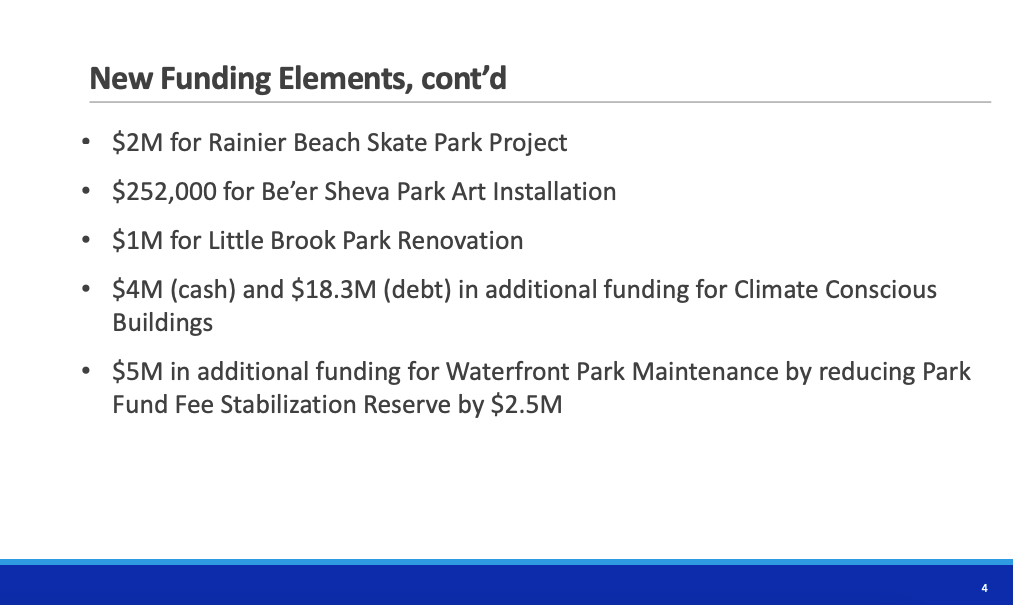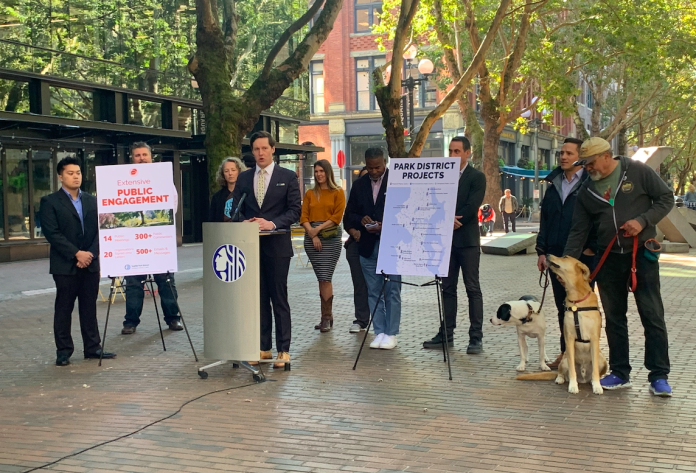
Councilmember Andrew Lewis (District 7) has released his six-year funding plan (2023-2028) for the Seattle Metropolitan Park District, the third funding plan made public following the proposals put forward by the Seattle Parks District Board and Mayor Bruce Harrell. Of the three, Lewis’ proposal is the most ambitious — and expensive — to date. Lewis, who serves as president of the Seattle Park District Governing Board, is seeking to raise the proposed tax by one cent from $0.38 to $0.39 per $1,000 of assessed real estate value, adding funding for items that featured prominently in public comment such as renovating community centers to increase their climate resilience, increasing equitable investment in parks, and adding new off-leash dog areas. Other plans had allocated no money for expanding the number of off-leash areas despite them making up a significant portion (30%) of all public comments, the single largest share of any topic.
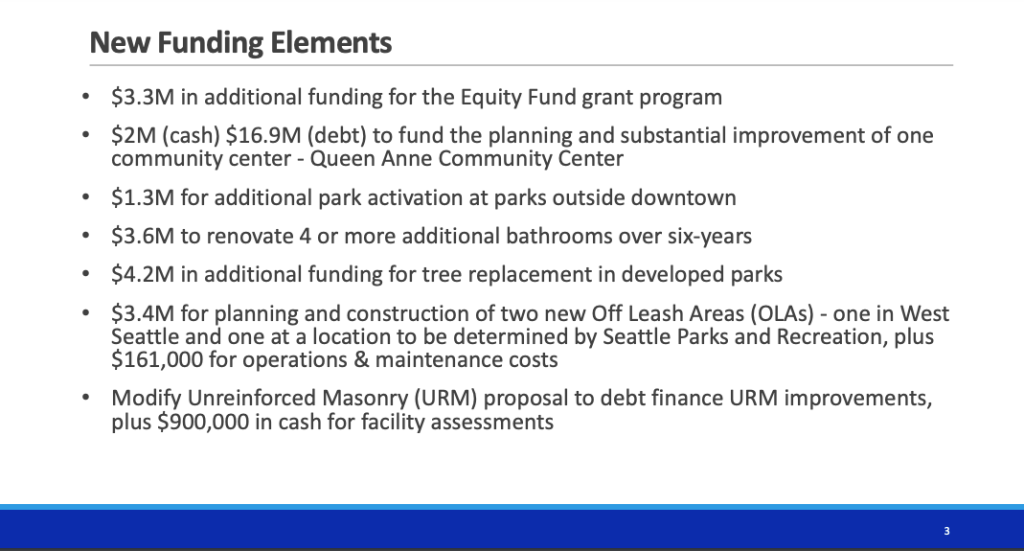
“This funding plan maintains the investments proposed by Mayor Harrell and builds on them with additional supports for a funded mandate to make our parks clean, green, and accessible to all. Partnership between the Mayor and Council is essential for us to build on our mandate from the people of Seattle for the action-oriented change they expect from their leaders,” said Lewis during a press conference in Pioneer Square’s Occidental Park. “Today’s proposal is also the result of extensive public engagement: 14 public meetings, over 300 in-person public comments, 20 formal requests from organizations, and more than 500 emails, letters, and messages.”
Representatives from the West Seattle Dog Park Coalition, along with labor, nonprofit, and neighborhood advocacy leaders were present at the event to show their support.
Labor leaders included Andrea Ornelas, Assistant Political Director of Laborers Local Union 242 and Katie Garrow, Executive Secretary-Treasurer of MLK Labor.
“Who uses community centers and parks? Working families do,” said Garrow, who went on to describe the affordable services and activities public parks and community centers provide for families with children and seniors.
The emphasis on benefits for working class Seattleites during the press conference may have been connected to the cost increase associated with the proposal. Under Lewis’ plan, in the first cycle spending would amount to about $342 per year for the median residence, or $12 per month. This roughly double what residents paid during the first budget cycle of the Seattle Parks District, which operates as a supplemental funding source for Seattle Parks and was approved by voters in 2014.
The amount would decrease slightly over the six-year period to $0.36 in 2028, maintaining the approximate $0.01 increase over the Mayor’s plan.
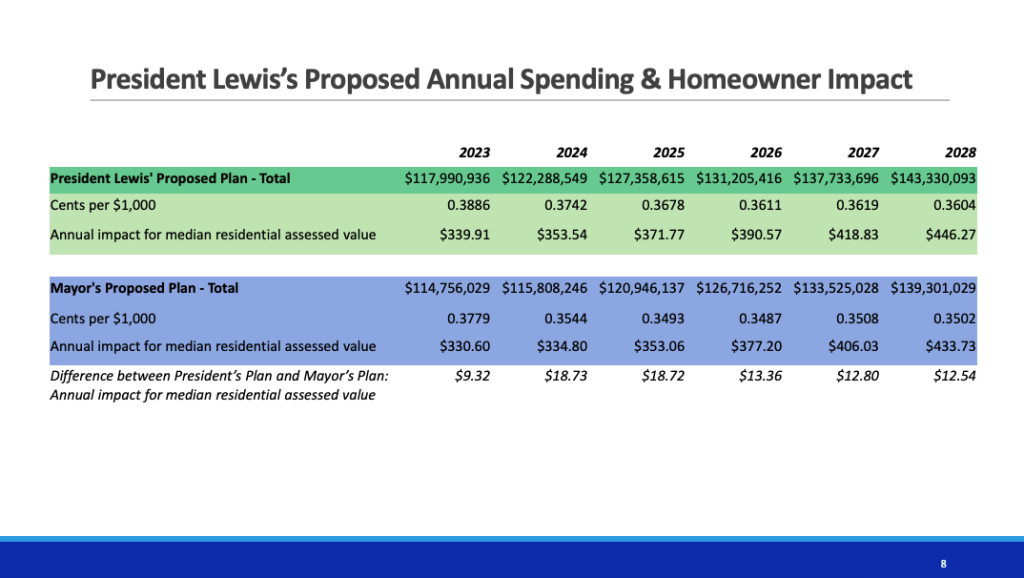
In the Park District Board meeting that followed the press event, Councilmember Sarah Nelson (District 4) raised concerns about the financial impact of the proposed tax on property owners, as she had in the previous discussion of Mayor Harrell’s proposal. Since the financial contribution of the Parks District for projects is considered to be supplemental, and thus would not cover any full project costs, securing outside funding from elsewhere in the City or other sources, like federal grants will be a necessity for many projects. Nelson questioned if it would be possible to adjust, and potentially decrease, the spending over the six-year period if the City finds itself flush with federal money.
“We want to reduce what we are charging our property owners including nonprofit housing providers, et cetera, and [understand] how that can be adjusted as new money comes in potentially,” Nelson said.
Nelson also questioned if Seattle Parks was prepared to spend all of the allocated money during the debut period of the new tax. “Parks might not be able to spend all the money in the first year because of ramp up needs,” Nelson said.
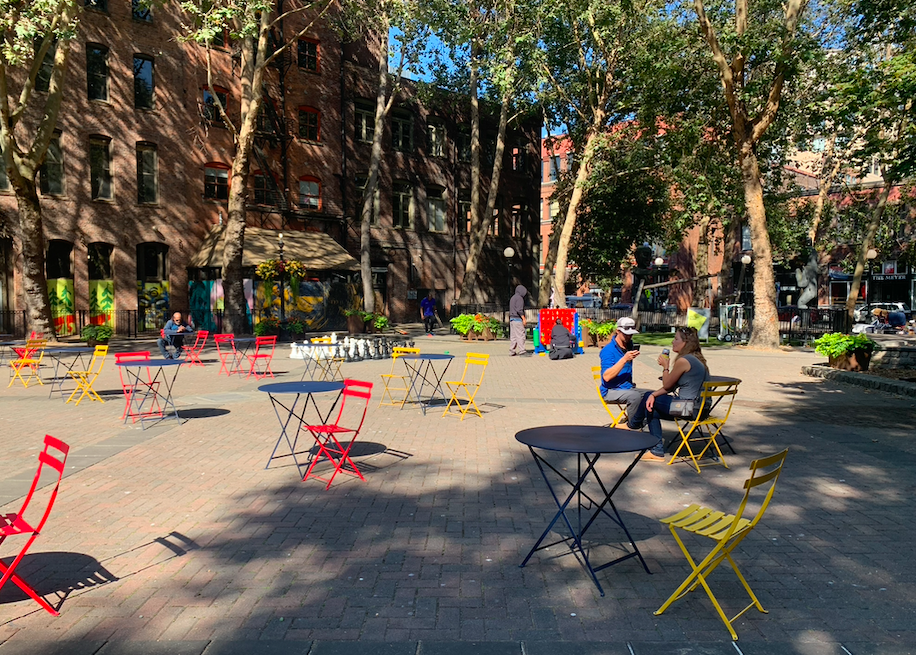
City staff responded that these considerations had been taken into account when the spending plans were crafted. Additionally, certain expenses, like the renovation of community centers, were so costly that even doubling the Seattle Park District budget would fall short of meeting stated city goals.
“We have a ballpark estimate of $3-7 million to decarbonize a community center. There is not that much money that’s been allocated in this spending plan on the baseline that could accommodate the goal of wanting to try to decarbonize half of our community centers,” Traci Ratzliff, Central staff, said.
No other councilmembers raised concerns about the amount of the tax at the meeting, but the topic could reemerge in subsequent negotiations.
More funding for decarbonizing community centers
Board President Lewis’ proposal would increase investment in nine community centers, renovating them and/or making them what the City is calling “climate conscious buildings” by installing elements like solar panels, improved insulation, and air filtration system. The selected community centers would include:
- Lake City Community Center
- Loyal Heights Community Center
- Green Lake Community Center
- Queen Anne Community Center* ($2 million in cash, $16.9 million in debt — the single community center largest increase over Harrell’s proposed spending plan)
- South Lake Union Community Center
- Garfield Community Center
- Rainier Community Center
- Van Asselt Community Center
- High Point Community Center
At the end of the Seattle Parks District meeting, Councilmember Dan Strauss (District 6) expressed dismay that the Green Lake Community Center would not be receiving more than the $50 million allocated in the Mayor’s budget in Lewis’ proposal.
“What is striking to me is that the current level of support is design to be less than significant alteration when the conversation was initially about replacement [of the community center],” Strauss said.
It seems likely that Strauss will introduce an amendment to increase funding for Green Lake as the spending plan discussions proceed forward.
A larger Equity Fund
Another budget area that would increase under Lewis’ proposal is the Equity Fund, which would double to $3 million annually. The Equity Fund aims to help close the park project fundraising gap between wealthier neighborhoods and those with fewer resources by investing in neighborhood projects Lewis described as “meritorious” without the requirement of raising neighborhood matching funds.
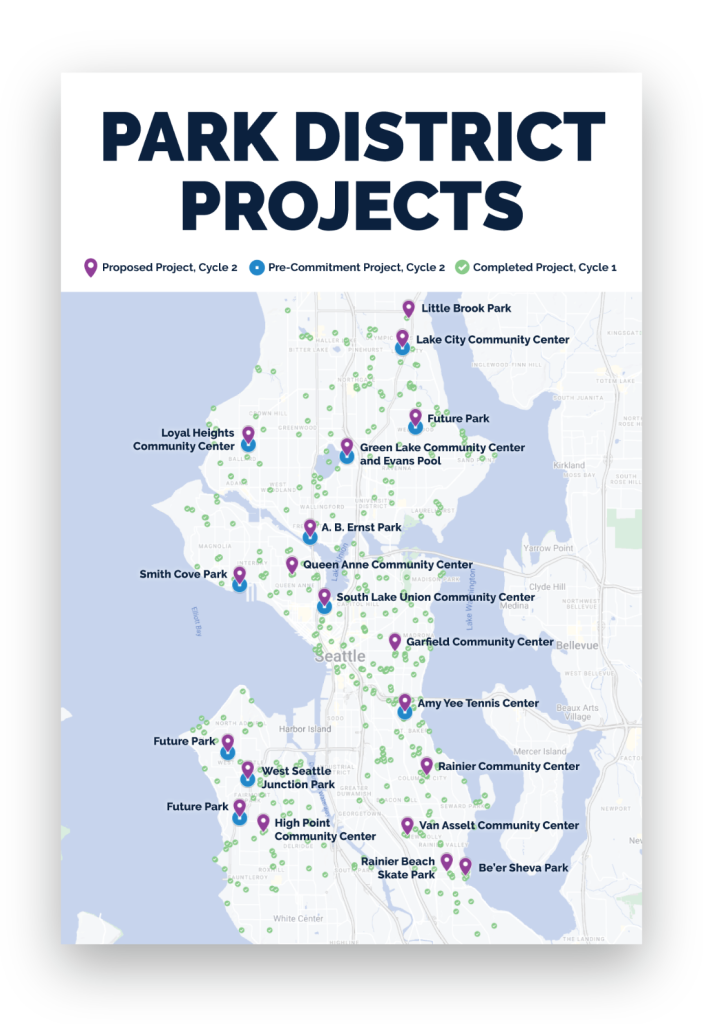
Additionally, equity minded projects like the Rainier Beach Skate Park and Little Brook Park renovation in Lake City would also see increased funding in Lewis’ plan.
Funding for off-leash areas
One of the biggest departures from previous proposals was the inclusion of funding for creating two new off-leash areas. One in West Seattle and another in a location to be determined. The funding would also cover operations and maintenance for the off-leash areas, which has long been presented as a financial impediment to expanding them throughout the city even as demand remains high. Lewis said that West Seattle had been selected because of the current lack of off-leash areas in the neighborhood relative to other parts of the city and that a full process would be undertaken to determine the location of the second site.
Next steps
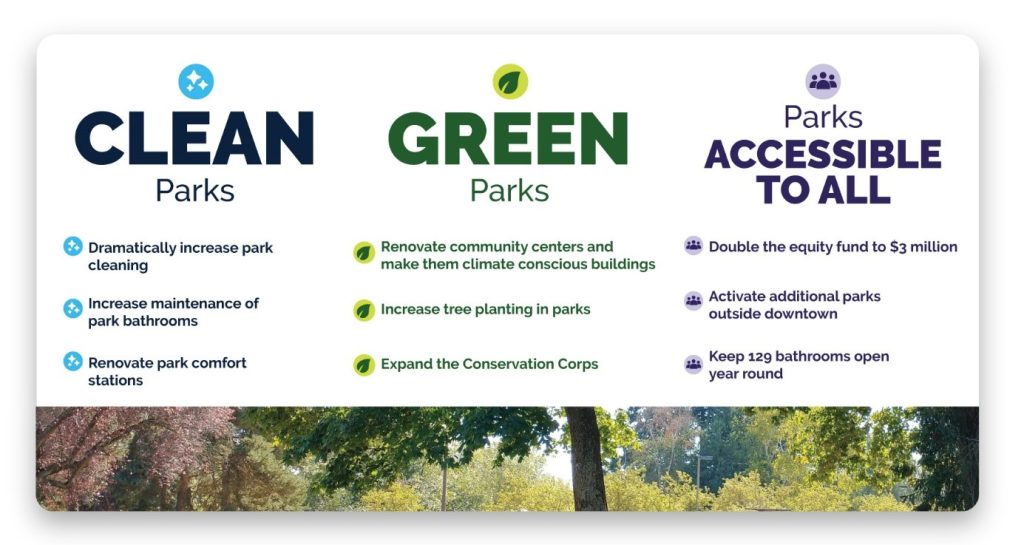
The public should expect the Council to vote on the Park District budget on Tuesday, September 27th. Before then, councilmembers will have the opportunity to present their amendments. Those amendments will be discussed and potentially adopted at the Friday, September 23rd, Seattle Park District Governing Board meeting.
For readers interested in learning more about the Seattle Park District, check out the website, where there is information about the planning process, agendas and minutes from the Governing Board, and an FAQ.
Natalie Bicknell Argerious (she/her) is a reporter and podcast host at The Urbanist. She previously served as managing editor. A passionate urban explorer since childhood, she loves learning how to make cities more inclusive, vibrant, and environmentally resilient. You can often find her wandering around Seattle's Central District and Capitol Hill with her dogs and cat. Email her at natalie [at] theurbanist [dot] org.


